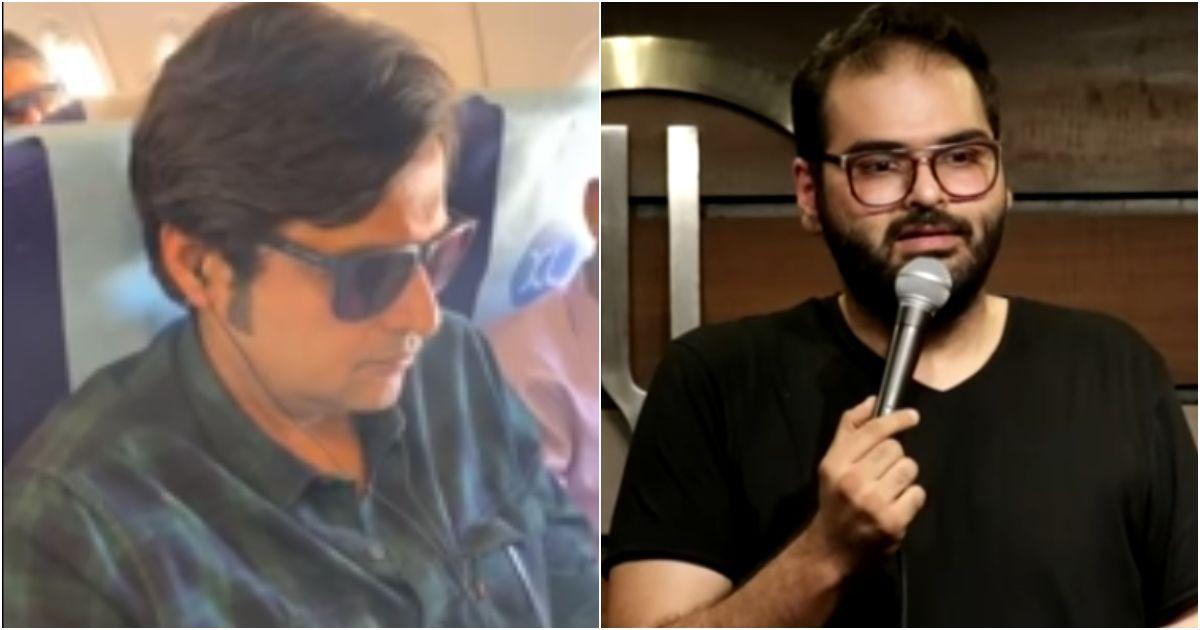
After IndiGo, SpiceJet, GoAir and Air India airlines imposed a flight ban on Kunal Kamra for confronting Arnab Goswami about his style of journalism, many questions about the rights of passengers have arisen post the incident.
While IndiGo banned Kamra from flying with it for six months, SpiceJet, Air India and GoAir have banned him until further notice.
However, many have been questioning whether the flight ban imposed on Kamra is valid or not. Especially now, when IndiGo itself filed no complaint against him before imposing the ban and a tweet from Civil Aviation Minister Hardeep Singh Puri got the other three airlines to ban him on their flights – a decision that industry executives questioned saying it undermined the rules specified by the aviation regulator. This was the minister’s tweet that set the ball rolling:
Offensive behaviour designed to provoke & create disturbance inside an aircraft is absolutely unacceptable & endangers safety of air travellers.
We are left with no option but to advise other airlines to impose similar restrictions on the person concerned. https://t.co/UHKKZfdTVS
— Hardeep Singh Puri (@HardeepSPuri) January 28, 2020
It has also unsettled the public, bringing up a contentious possibility that the government could use the no-fly list for political revenge and curb the freedom of citizens.
In 2017, the Directorate General of Civil Aviation (DGCA) laid down rules on what behaviour constituted being put on a no-fly list.
The norms defined an unruly passenger as, “A passenger who fails to respect the rules of conduct at an airport or on board an aircraft or to follow the instructions of the airport staff or crew members and thereby disturbs the good order and discipline at an airport or on board the aircraft.”
The offences are classified under three different grades:
1. Level 1: Unruly behaviour (physical gestures, verbal harassment, unruly inebriation etc.) attracting three months on the no-fly list
2. Level 2: Physically abusive behaviour (pushing, kicking, hitting, grabbing or inappropriate touching or sexual harassment etc.) attracting six months on the no-fly list
3. Level 3: Life-threatening behaviour (damage to aircraft operating systems, physical violence such as choking, eye-gouging, murderous assault attempted or actual breach of the flight crew compartment etc.) attracting two years or more on the no fly list
According to the DGCA rules, the procedure to place a passenger on the no-fly list must be initiated by the pilot in command of the flight who sends a report to the airline. The airline has to then form an internal committee comprising of a retired District and Sessions judge as the Chairman, a representative from a different scheduled airline as a member and a representative from a passenger / consumer association or a retired office of the Consumer Dispute Redressal Forum as a member, to study the case and decide the punishment.![]()
The committee will then decide within 30 days the gravity of the matter and decide the level of the offences and other airlines too can choose to put passengers on their no-fly list for the duration of the ban. If the committee doesn’t make a decision within 30 days, the case against the passenger is dropped. The recourse for the passenger is to appeal the ban within 60 days with an Appellate committee constituted by the Ministry of Civil Aviation, and further appeal in a High court if the decision of the ban is upheld by the Ministry.
Sudhakar Reddy, President of the Air Passengers Association of India has said that the rules on the no-fly list are heavily tilted in favour of airlines. Business Standard reported him as saying, “The success of any law lies in it balancing the interests of all concerned. Unfortunately, at first glance, these rules look skewed against passengers. Who gave the right to airlines to ban the passenger without any enquiry? In all laws you are innocent till proven guilty.”
An executive from one of the airlines that banned Kamra also said, “The minister created undue pressure on airlines, forcing hurried decisions. You know whom you should ideally question on this and it’s not the airlines. Such things set a dangerous precedent.”
Vistara and Air Asia India have not banned Kamra yet. Vistara’s ex-Chief Commercial Officer Sanjiv Kapoor told Business Standard, “DGCA regulations, like all other regulations, have to be followed and not disregarded. Else, we are on a slippery slope.”
Writing for Bar and Bench, Sameer Jain, the founder and managing director of PSL advocates said, “At best he falls under a level 1 threat (verbal assault) as per the DGCA regulations,” said Jain, adding that Kamra’s fundamental right to travel was being violated.”
He also stated that banning a passenger via a tweet was in clear contravention of the rules mentioned by the DGCA and also asked the pertinent question about the passenger’s right to travel which is held by the Supreme Court as a part of the fundamental right to life and liberty.
Related:
Kunal Kamra trolls Arnab Goswami on a plane